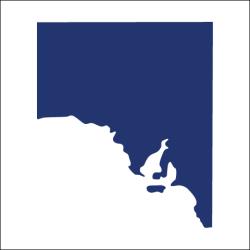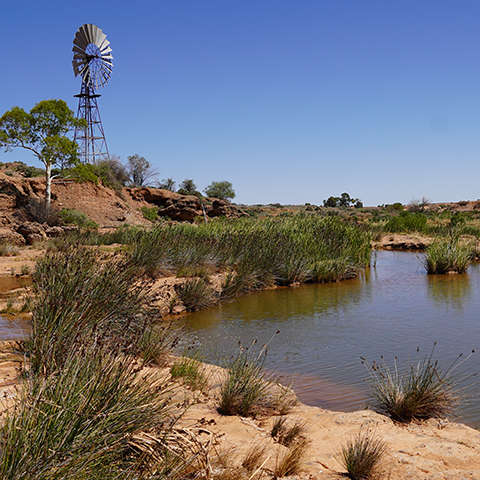
This project is funded by the Australian Government ($250,000). Australian Government funding is provided through the National Water Grid Fund.

Hookina Spring (Pungka Pudanha) near Yappala. Credit Simone Stewart
Project overview
A number of remote communities in South Australia rely on rainfall for their drinking water supply. These communities are at risk of water insecurity, particularly during droughts. Across Australia, droughts are expected to become more frequent and severe as our climate changes. These climatic pressures increase the risk that some communities will run out of drinkable water.
As a first step in addressing this risk, we are helping South Australia undertake a stocktake and water security assessment for 19 remote communities that are responsible for their own water supplies. Nine of these communities are Aboriginal Homelands and 10 are regional communities with a high Indigenous population.
Water stored underground (groundwater) may offer a climate-resilient backup water supply for some remote communities. However, not enough is known about the groundwater resources near the 19 at-risk communities that are part of the South Australian stocktake. The new project will collect data and information about the nearby groundwater to help understand whether they could be useful alternative water supplies.
The study will also collect data on water quality to determine next steps to bring the groundwater to drinkable quality.
Goals of the assessment
If successful, the project will identify suitable groundwater resources to increase water security for the 19 remote communities. This will also reduce the risk that community members will need to move off Country because of a lack of water for drinking and household use.
The assessment will:
- undertake field sampling of the groundwater sources currently used by the remote communities
- test the water quality of the samples
- use indicators to determine the longevity of the groundwater resource
- determine the aquifer extent, characterisation and physical parameters
- undertake hydraulic testing to assess the aquifer capacity
- work with an Aboriginal Engagement Consultant with good working relationships with the communities involved in the project.
Environmental and cultural considerations
The project will also source sufficient data on the groundwater resources to understand whether any future groundwater extraction for community use is environmentally sustainable.
Key project benefits
Learn more
- Discover our Science Program.
- Discover how we are supporting Indigenous communities.
- Read our latest news.

